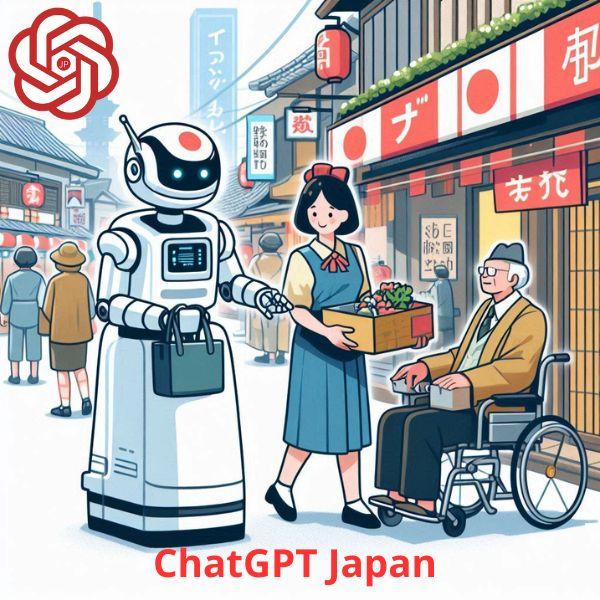ChatGPT Japan: How to Optimize Questions to Get the Best Answers from ChatGPT

Artificial intelligence tools like Chat GPT have transformed the way people access information, solve problems, and create content. However, to maximize the value of Chat GPT, it’s essential to know how to frame questions effectively. Crafting well-structured and optimized prompts can make a significant difference in the accuracy, clarity, and usefulness of the responses you receive. This guide will help you understand how to ask the right questions to get the best answers from Chat GPT.
Why Optimizing Questions Matters
Chat GPT is a powerful language model capable of generating detailed and contextual answers. However, its effectiveness depends largely on the quality of the input it receives. Clear, concise, and specific questions help the AI understand your intent better, ensuring you get responses that align with your needs.
Strategies for Asking Effective Questions
1. Be Specific and Clear
The more precise your question, the more accurate the response. Avoid vague queries and provide details that help Chat GPT understand the context.
Example:
- Vague: “Explain technology.”
- Optimized: “Explain how blockchain technology is used in supply chain management.”
Specificity narrows down the scope, ensuring the response is relevant and focused.
2. Use Step-by-Step Instructions
For complex tasks, break your request into smaller, manageable steps. This ensures clarity and improves the quality of the response.
Example:
- “Help me write a business proposal for a tech startup targeting healthcare.”
- Better: “Provide an outline for a business proposal. Include sections like market analysis, solution, and financial projections.”
3. Include Examples and Context
If possible, include examples or elaborate on the context of your query. This allows Chat GPT to tailor its response more effectively.
Example:
- Without context: “Write a marketing email.”
- With context: “Write a marketing email promoting a 20% discount on winter clothing for an online retail store.”
4. Specify the Format
When you need information presented in a specific format, mention it in your query.
Example:
- “Summarize the benefits of exercise.”
- Optimized: “List the benefits of exercise in bullet points.”
By specifying the format, you save time revising or reorganizing the output.
5. Use Follow-Up Questions
If the first response isn’t what you expected, refine your query and ask follow-up questions. This iterative process helps you zero in on the desired result.
Example:
- Initial: “Explain digital marketing.”
- Follow-up: “Can you focus on social media strategies within digital marketing?”
Common Mistakes to Avoid
1. Overloading the Query
Long and overly complex questions can confuse Chat GPT. Instead of cramming multiple requests into a single query, split them into smaller parts.
2. Ambiguity
Avoid using ambiguous language or phrases that can have multiple interpretations.
Example:
- Ambiguous: “Tell me about the project.”
- Clear: “Explain how to manage a software development project using Agile methodology.”
3. Ignoring Grammar and Spelling
While Chat GPT is adept at understanding input, poorly phrased questions may lead to misinterpretations. Take a moment to review your query for grammar and spelling errors.
4. Not Providing Enough Context
Context is crucial for generating accurate responses. Don’t assume Chat GPT knows the background unless you explicitly state it.
Examples of Optimized Questions
For Learning
- “Explain the history of the Meiji Restoration in Japan in simple terms for a high school student.”
- “What are the main differences between renewable and non-renewable energy sources?”
For Writing Assistance
- “Draft a formal resignation letter with two weeks’ notice.”
- “Write a product description for a smart home security system focusing on safety and convenience.”
For Problem-Solving
- “How can I improve my time management as a freelancer?”
- “What are the steps to troubleshoot a slow internet connection at home?”
Advanced Tips for Expert Users
1. Leverage Systematic Prompts
If you’re working on a larger project, break down the task into phases and provide structured prompts.
Example:
- “Outline the key sections of a research paper on climate change.”
- Follow-up: “Expand on the methodology section, including data collection methods.”
2. Ask for Multiple Perspectives
When exploring a topic, ask Chat GPT to provide diverse viewpoints.
Example:
- “What are the pros and cons of remote work for employers and employees?”
3. Request for Refinements
Ask for additional edits or refinements to improve the quality of the response.
Example:
- Initial: “Write a blog intro about digital marketing.”
- Follow-up: “Make the tone more engaging and include a call-to-action.”
Benefits of Optimizing Questions
Optimized questions lead to:
- Better Accuracy: Clear prompts help Chat GPT generate precise answers.
- Time Efficiency: Focused queries save time by reducing the need for repeated attempts.
- Improved Output Quality: Specific instructions enhance the depth and relevance of responses.
- Personalized Results: Tailored prompts ensure the answers align with your unique requirements.
Contact
Company name: ChatGPT Japan
My page: https://chatgptjapan.com/
City: Chuo City, Tokyo
Country: Japan
Postal code: 104-0061
Phone number: +8164-221-1078
Email: chatgptjapan.com@gmail.com
Google Map: 7-chōme-14-13 Ginza, Chuo City, Tokyo 104-0061
#chatgpt日本語, #チャットgpt無料, #チャットgpt, #チャットgpt日本語, #chatgpt





